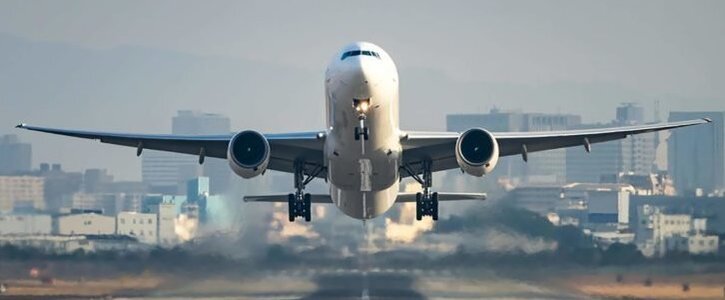100 signatures reached
To: United States Department of Transportation
Keep Airlines Competitive - Reduce Taxpayer Burden

Allow airlines to consolidate passengers between cities on flights so that they may minimize operating expenses and reduce the amount of federal funds necessary to ensure air travel continues.
Why is this important?
U.S. has until recently had a strong and healthy air transportation industry. Having multiple carriers providing service on same routes encourages competition. Competition improves quality and convenience and reduces prices, all of which benefit the consumer and passengers.
On March 31, 2020, the U.S. Department of Transportation issued a show cause order (see docket DOT-OST-2020-0037) proposing air carriers offering scheduled passenger service and all-cargo carriers maintain a defined schedule of flights to communities they served prior to March 1, 2020, through September 30, 2020. This is nonsensical as the demand for service does not exist. The airlines have requested to be able to consolidate their passengers onto flights between cities rather than sending five passengers on Delta and five passengers on United.
Alternatively, air carriers could reduce the number of flights flown between cities and anti-trust regulations could be furloughed and scheduling could be allocated based on current demand and recent year's marketshare. Perhaps air carriers could each be allocated days or week or specific dates which they are the service provider between specific markets. (For example, American on Mondays and Thursdays, Delta on Tuesdays and Fridays, United on Wednesdays and Sundays, and Southwest on Saturdays.) This would not be much different than how during the 1970s oil crisis people were allowed to purchase gasoline based on their vehicles license plate number.
Considering the energy (electricity, water, fuel) cost and health risks (increased number of persons reporting to work as ticketing, gate agents, maintenance service, air traffic controllers, TSA agents, janitors) to operate vast more planes, terminals, and gates than is necessary to service passengers and nationalizing air carriers will result in reduced competition in the future, the USDOT order is ill-conceived and will be costly for U.S. taxpayers. First, there is the $50 billion bailout. Second, many of the airlines will be forced into bankruptcy. Third, to maintain service it will be necessary of the government to takeover ownership (i.e., nationalize) bankrupt airlines, assets (i.e., landing/takeoff rights, gate rights) will be consolidated, and competition will be reduced.
Consider last recession. Ford remained private, survived and flourished. GM was nationalized and survived, and near dead Chrysler was resuscitated by private equity funded acquisition by Fiat. Did government improve GM or Chrysler products or services or pricing for customers??? (No.) Let's not let this happen to air carriers in the United States. Yes, some may flourish and some may fail, but let's not force the stronger air carriers and taxpayers drown by being forced to prop up other airlines.
Tell the U.S. Department of Transportation to work with air carriers to allow them to consolidate passengers and air cargo and reduce the number of daily flights between cities immediately while fostering survival of multiple air carriers servicing same markets.
On March 31, 2020, the U.S. Department of Transportation issued a show cause order (see docket DOT-OST-2020-0037) proposing air carriers offering scheduled passenger service and all-cargo carriers maintain a defined schedule of flights to communities they served prior to March 1, 2020, through September 30, 2020. This is nonsensical as the demand for service does not exist. The airlines have requested to be able to consolidate their passengers onto flights between cities rather than sending five passengers on Delta and five passengers on United.
Alternatively, air carriers could reduce the number of flights flown between cities and anti-trust regulations could be furloughed and scheduling could be allocated based on current demand and recent year's marketshare. Perhaps air carriers could each be allocated days or week or specific dates which they are the service provider between specific markets. (For example, American on Mondays and Thursdays, Delta on Tuesdays and Fridays, United on Wednesdays and Sundays, and Southwest on Saturdays.) This would not be much different than how during the 1970s oil crisis people were allowed to purchase gasoline based on their vehicles license plate number.
Considering the energy (electricity, water, fuel) cost and health risks (increased number of persons reporting to work as ticketing, gate agents, maintenance service, air traffic controllers, TSA agents, janitors) to operate vast more planes, terminals, and gates than is necessary to service passengers and nationalizing air carriers will result in reduced competition in the future, the USDOT order is ill-conceived and will be costly for U.S. taxpayers. First, there is the $50 billion bailout. Second, many of the airlines will be forced into bankruptcy. Third, to maintain service it will be necessary of the government to takeover ownership (i.e., nationalize) bankrupt airlines, assets (i.e., landing/takeoff rights, gate rights) will be consolidated, and competition will be reduced.
Consider last recession. Ford remained private, survived and flourished. GM was nationalized and survived, and near dead Chrysler was resuscitated by private equity funded acquisition by Fiat. Did government improve GM or Chrysler products or services or pricing for customers??? (No.) Let's not let this happen to air carriers in the United States. Yes, some may flourish and some may fail, but let's not force the stronger air carriers and taxpayers drown by being forced to prop up other airlines.
Tell the U.S. Department of Transportation to work with air carriers to allow them to consolidate passengers and air cargo and reduce the number of daily flights between cities immediately while fostering survival of multiple air carriers servicing same markets.
